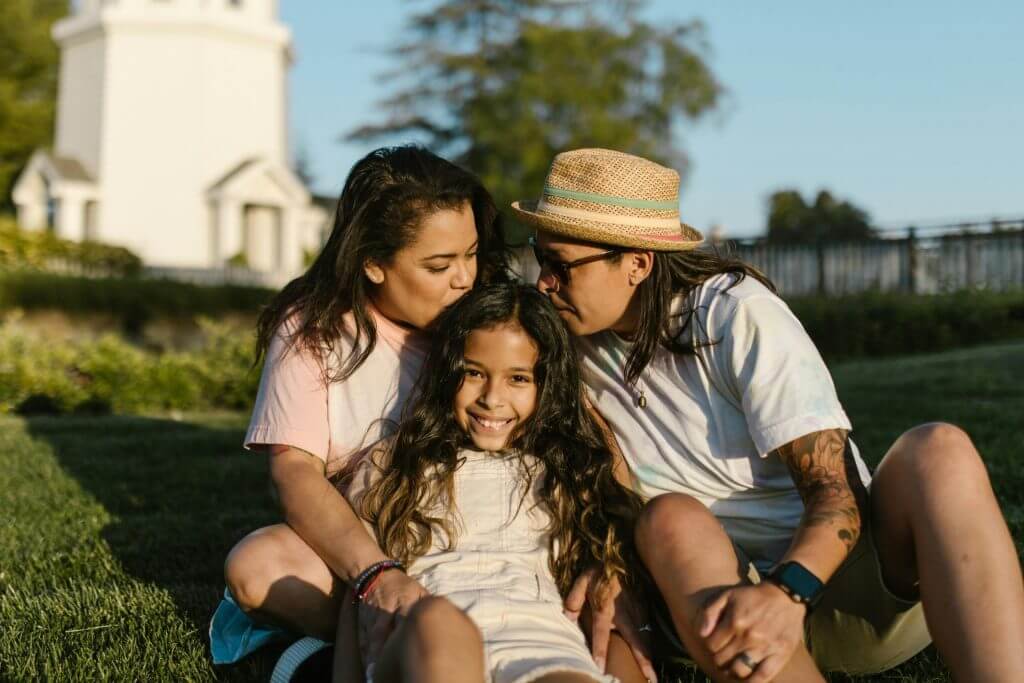Many migrants are looking for reuniting with loved ones. In this sense, the family reunification processes (FRP) may be the resource they need. So today we will look at what family reunification parole is, its eligibility requirements, and how to apply for it.
At Urbina Immigration Law we know the stress and confusion of going through the immigration process. That’s why our attorneys are prepared to help you navigate the complex U.S. system. Don’t risk your future by facing it alone. Contact us and take the first step towards your new life in the United States.
Table of Contents
What is family reunification parole?
Family reunification parole is a program that allows citizens of some Latin American countries to be reunited with family members in the U.S. Beneficiaries are granted temporary permission to stay in the United States and the the possibility of applying for a work permit and the permanent residence.

Which countries have a family reunification parole process?
Currently, there is a family reunification program for Colombians, Ecuadorians, Guatemalans, Hondurans, and Salvadorans. In addition, there are similar processes for citizens of Cuba and Haiti.
What are the eligibility requirements for family reunification parole?
Eligibility requirements for family reunification parole vary depending on whether the petitioner (citizen or permanent resident filing Form I-130) or the beneficiary of the petition (family member for whom the petitioner filed an I-130). In the following table you will find the requirements for each one:
| Petitioner | Beneficiary |
| Be a U.S. citizen or lawful permanent resident. | Be a relative of a petitioner in the United States with an approved Form I-130 and an invitation. |
| Have a Form I-130 approved by USCIS. | Be a national of a country with a family reunification parole process. |
| Have received a written invitation. | Not to have an immigrant visa at the time of receiving the invitation. |
| No immigrant visa was issued to the principal beneficiary upon receipt of the invitation. | Be outside the United States. |
| Be able to demonstrate sufficient income to provide financial support to the beneficiary. | Have a valid and current passport. |
| Undergo a medical examination and be approved for travel by a panel physician. | |
| Submit and receive approval of national security and public safety investigation. | |
| Demonstrate that it warrants a favorable exercise of discretion by the Department of Homeland Security (DHS). |
Please note that requirements may vary depending on your case and additional requirements may apply. Therefore, it is advisable to seek legal assistance to ensure that you meet all the conditions for eligibility. At Urbina Immigration Law we can help you. Talk to a lawyer and take the first step toward reuniting with your family.
Circumstances That May Affect Eligibility
Some circumstances may affect your eligibility for a family reunification parole. In the following table you will find the most common ones:
| Circumstance | Description |
| The petitioner becomes a U.S. citizen. | If a lawful permanent resident becomes a citizen after filing Form I-134A, the beneficiaries may have an immigrant visa available. They may opt for the FRP process or immigrant visas. |
| Beneficiary marries | Changes in a family member’s marital status may affect eligibility. Ineligible married relatives include:- Married and adult children of petitioners with permanent resident cards. – Children under 21 who marry after Form I-130 approval (lose eligibility). – Minor children of the principal beneficiary who marry after Form I-130 approval (no longer considered minor children under the INA and cannot use the FRP process). |
Family Reunification Parole Invitation Process
Once the Form I-130 is approved, the petitioner will receive a written invitation from the National Visa Center (NVC) via email or mail. This invitation establishes a 12-month deadline for filing Form I-134A. Invitations are issued on a rolling basis. However, please note that these depend on the government’s operational capacity and the estimated time for the visa availability of the principal beneficiary, so there may be delays in your application.

What documents do I need to obtain the family reunification parole?
In the following table you will find the general documentation required to obtain the family reunification parole:
| For the Petitioner | For the Beneficiary |
| Form I-130 (Petition for Alien Relative) | Proof of family relationship to the petitioner (marriage certificate, birth certificate, etc.) |
| Form I-134A (Affidavit of Support) | Statement of eligibility affirming any of the following: – You are a national of a country with a family reunification permit process and the primary beneficiary of an approved Form I-130 (Alien Relative Petition). – The spouse of a principal beneficiary of an approved Form I-130. – Is the child of a principal beneficiary of a Form I-130 and is unmarried and under the age of 21. |
| Proof of citizenship or legal residence | Statement certifying that: – Includes the requirements for familial relationship with children under the age of 18, including the requirements that a child under the age of 18 must travel with and in the care and custody of a parent or legal guardian to be considered for temporary permission to stay under a parole process. – You understand that, as a parent or legal guardian, you must provide evidence of paternity or legal guardianship upon arrival at the port of entry. |
| Proof of family relationship with the beneficiary (marriage certificate, birth certificate, etc.) | Valid identity document |
| Certification that you have completed a medical examination by a panel physician and have no Class A medical conditions. |
Submitting the necessary documentation is key to the success of your application. However, this may vary from case to case. Therefore, it is best to seek advice from an immigration attorney to help you gather the relevant documents. At Urbina Immigration Law we can help you. Talk to our professionals and let’s get your paperwork in order.
What is the application process for a family reunification parole?
The process of applying for a family reunification parole can be summarized in the following steps:
Step 1: Invitation
Once your Form I-130 is approved, you will receive a written invitation by email or mail from the National Visa Center (NVC). This notifies you of your eligibility to file Form I-134A (Online Application to Become a Supporting Person and Declaration of Financial Support).
Step 2: File Form I-134A
After receiving the invitation, the petitioner may begin the process by filing Form I-134A online with USCIS. It is important to use a separate form for each beneficiary. Please note that this includes financial details and family relationships, verified by USCIS.
Step 3: Confirmation and Certification of the Beneficiary
USCIS will confirm the petitioner’s Form I-134A. The beneficiary will then be instructed to certify biographical information and complete a medical examination with a panel physician.
Step 4: Request in CBP One Application
After confirmation, the beneficiary must enter their biographic information into the CBP One application and provide a photo as prompted, preparing for the clearance process.
Step 5: Authorization, Inspection and Temporary Permit to Stay
Finally, CBP will decide whether or not to issue an advance travel authorization. The beneficiary will be inspected at the port of entry, considering his or her eligibility and, if approved, will be granted permission to stay temporarily in the United States.
The family reunification parole process can be confusing and stressful for any immigrant. But do not despair. At Urbina Immigration Law, our immigration attorneys are prepared to help you and accompany you every step of the way. Tell us about your case and get the quality legal assistance you deserve.
How long does a family reunification parole stay in the United States?
Temporary permission to stay in the United States granted by a family reunification parole is valid for 3 years. In addition, you may apply for an Employment Authorization Document (EAD) by filing Form I-765 (Application for Employment Authorization).
Is there an age limit for beneficiaries of a family reunification parole?
There is no age limit to be a principal beneficiary of a family reunification permit. However, any derivative child must be under 21 years of age on the date the Form I-134A is received.
How is family reunification parole different from humanitarian parole?
The main difference is in the purpose and requirements of each parole. The family reunification parole seeks to unite family members. In contrast, the humanitarian parole allows entry of individuals sponsored by anyone into the U.S. without prioritizing family relationships between them.
Can I travel outside the United States as a beneficiary of family reunification parole?
Yes, as a beneficiary of the FRP process, you may apply for Advance Travel Authorization on Form I-131 before you leave the United States. After receiving temporary permission to stay, you may travel and return, provided you apply for and obtain such a document prior to your departure.
Family reunification parole approved, what’s next?
After approval of the family reunification parole, you may apply for Employment Authorization (EAD) using Form I-765. It is also advisable to apply for a Social Security number (SSN) and update your address through the USCIS Single Change of Address Tool.
However, this varies depending on your specific situation and, if you do not follow the relevant regulations, you could get into trouble for unlawful presence accumulation. Therefore, seeking legal advice to analyze your situation is essential. At Urbina Immigration Law we can help you. Contact us and take the first step to reunite with your loved ones.
Sources
USCIS – Humanitarian Family Reunification Permit Processes
USCIS – Form I-130, Alien Relative Petition
Other resources
How to obtain a Green Card in the United States – Updated Guide
What are the Green Card categories?
What are the requirements for family reunification in the United States?
How to apply for American residency by family petition, step by step
Family sibling petition: what you need to know as a U.S. citizen
Family sponsorship limits: How many family members can I bring to the United States?
Form I-130: Everything you need to know
Form I-130 Approved: How to Move Forward in the Family Petition Process


